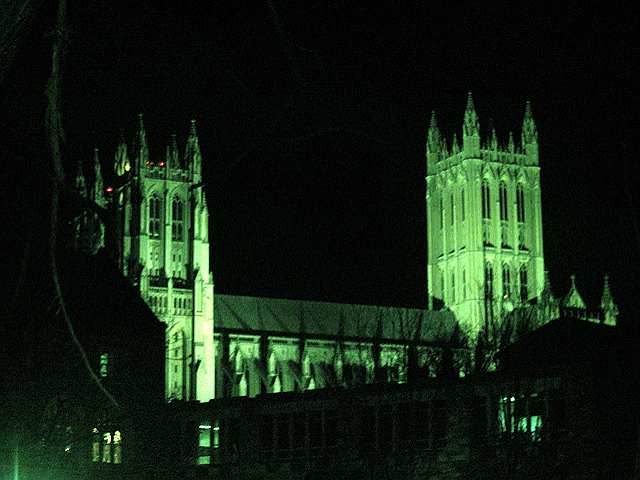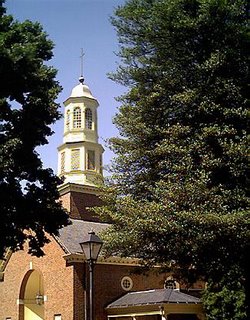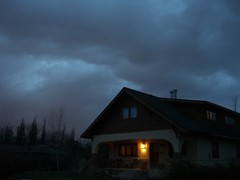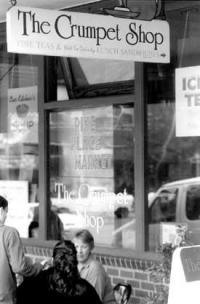
Here are two proposed resolutions which may be of particular interest to readers:
Resolution Six: “For Those Departing The Episcopal Church”
Scenario Addressed: Parishes and/or self-supporting missions within the Diocese of the Rio Grande decide that they cannot continue within the structure of The Episcopal Church.
Resolved, that this 54th Convocation of the Episcopal Diocese of the Rio Grande adopts the following policy should one of its member parishes or self-supporting missions attempt to sever its relationship to the Diocese and the Episcopal Church:
1. It has been recognized as a communion issue by the four Anglican Communion Instruments of Unity (Anglican Consultative Council, Primate’s Meeting, Archbishop of Canterbury, and the Lambeth Conference).
2. A decision to sever its relationship with the Episcopal Church must be made by at least two-thirds of the qualified voters of the congregation, at a duly convened meeting in accordance with its by-laws, and certified by the bishop or his representative.
3. The congregation must remain a part of the Anglican Communion, and participate as a constituent member in the life of a Diocese within a Province of the Anglican Communion. Further, said congregation must have a bishop or other judicatory representative of the receiving entity involved in the realignment.
4. The parish or mission must be legally incorporated, and its officers must formally release the Diocese of the Rio Grande from, and assume responsibility for, any and all obligations or liabilities that may result from the decision to leave the Episcopal Church, including costs of litigation that may result from legal actions taken by dissenting members of the congregation.
5. All obligations incurred up to the date of the congregation’s departure, including notes held by or secured by the Diocese and pension and insurance assessments for its clergy and staff must be satisfied, and the congregation must conduct a certified audit and submit it to the diocesan Treasurer.
6. In both the year in which the congregation departs the diocese and the year following, the congregation agrees to compensate the diocese an amount equal to 100% of the average annual fair share it had been assessed the previous three years. In the following year, the congregation agrees to compensate the diocese an amount equal to 75 % of the average fair share. In the following year, the congregation agrees to compensate the diocese an amount equal to 50% of the average fair share. Furthermore, beginning the following year, the congregation agrees to compensate the diocese on an annual basis for seven years thereafter, an amount equal to 25% of the average annual fair share it had been assessed. Any fair share arrearages up to this date must be paid. (See Footnotes)
7. The Diocese expects any congregation which chooses to leave the Episcopal Church will treat those who choose to remain in a fair and equitable manner, realizing the needs of those who remain for a basic level of support in order for them to continue their life.
8. Associated clergy who desire to depart with the congregation must immediately resign their orders in the Episcopal Church as prescribed by canon or be transferred to another bishop or ecclesiastical authority as prescribed by canon or in a manner approved by the Archbishop of Canterbury. Associated clergy who wish to remain in communion with the Episcopal Church are entitled to reasonable severance as approved by the bishop and Standing Committee.
9. The departing congregation may be permitted by the Diocesan Council to retain its name, so long as references to the Episcopal Church are removed from its articles of incorporation, signage, stationary, publications, etc.
10. The diocese and the congregation will covenant together to pray for each other, avoid criticizing each other, and cooperate insofar as possible in the work of the Gospel.
11. In cases where a portion of a congregation chooses to realign and a portion chooses to remain in the Episcopal Church, each portion will covenant together to pray for each other, avoid criticizing each other, and cooperate insofar as possible in the work of the Gospel.
12. Legal title to all real property of the congregation will be conveyed to the congregation by the Trustees of the diocese when all of the above policy has been fully complied with.
Footnote One: If at any point after the severing of the pastoral relationship has begun until the completion of 10 years, the departing congregation desires to restore a pastoral relationship with the Diocese of the Rio Grande, all financial obligations will be considered resolved.
Footnote Two: In extreme circumstances, either the diocese or the congregation can make a request to initiate a process to address mutual concerns about the utility of the proposed formula in the particular circumstance of the departing congregation and to achieve a more appropriate settlement.
Explanation
There are three general approaches that dioceses may consider when a member congregation becomes so alienated from the wider Episcopal Church that it seeks to sever its relationship with it.
(i) The status quo position holds that a parish’s attempted departure is illegal and that the threat of punitive measures against both clergy and vestry are a necessary deterrence. In the event that the parish decides to take its property and assents, the diocese pursues all available legal remedies to enforce its claims. The diocese invariably prevails in this dispute, but usually only after long and expensive litigation that weakens and embitters all parties and damages the Church’s reputation.
(ii) There has been at least one instance where a diocese attempted to renounce its claim on the real property of its parishes and attempted to convey titles to the individual parishes. Although many would argue that this is fair and reasonable, it appears that such an approach may be in conflict with canon law and expose the diocesan leadership to unacceptable risk if accused of breaching its fiduciary responsibilities.
(iii) A negotiated settlement that permits a congregation to retain real property acknowledges the applicability of both diocesan and national canons. It has been used successfully, for instance by the Diocese of Kansas with Christ Church, Overland Park. The terms of that settlement are similar to what is proposed above and have been scrutinized and approved by the Presiding Bishop’s office.
Resolution Seven: “For Those Remaining Within The Episcopal Church”
Scenario Addressed: Portions of parishes and/or self-supporting missions decide that they can continue in within the structure of The Episcopal Church.
Whereas the 54th Convocation of the Diocese of the Rio Grande acknowledges that for many in this Diocese the actions of the General Convention of the Episcopal Church in 2003 and 2006 are an accurate reflection of their understanding of the Gospel, and
Whereas the 54th Convocation of the Diocese of the Rio Grande desires to interact with the greatest degree of charity toward those who may find themselves in a minority position in a parish or mission that votes to leave the Episcopal Church and/or Diocese (Exodus Resolution), and
Whereas many of these same fellow-Christians will prefer to remain within The Episcopal Church if said Church must either accept a reduced role or no role at all, within the Anglican Communion,
Be it therefore resolved that the 54th Convocation of the Diocese of the Rio Grande adopt the following policy for pastoral and Episcopal care:
1. Once a Parish or Mission of the DRG has met the vote requirements to leave the Episcopal Church, the Bishop shall appoint a joint task force made up equally of those staying within The Episcopal Church and those leaving. The Bishop shall also appoint an arbitrator to work with the parochial task force. The task force shall work with the arbitrator to reach agreement on the following:
a. Adequate pastoral and sacramental ministry for those remaining.
b. Adequate physical space in which to conduct worship.
c. Adequate liturgical tools with which to conduct worship (vestments, prayer books, altar vessels, etc.)
d. Adequate financial provision to ensure continued ministry and mission viability.
e. Equitable division of memorials and restricted endowments.
2. A copy of the audit submitted to the Diocesan Treasure shall also be made available to the task force.
3. Those remaining and those leaving the congregation will covenant with one another to pray for one another, refrain from criticizing one another, and will commit to cooperate with one another as far as possible in the work of the Gospel.
The task force report also contains a short critique of each of the seven proposed resolutions. Here are the critiques presented for Resolutions 6 and 7:
Resolution Six: “For Those Departing The Episcopal Church”
Positives
~ Establishes a mechanism for allowing congregations to leave the Diocese with minimal conflict and forfeiture.
~ Provides a model for addressing the immediate and short term financial needs of a Diocese facing declining assessment income as a result of departing congregations.
~ Attempts to avoid civil litigation that might compromise the witness of the Church to the world.
Concerns
~ Encourages bishops to intervene across provincial lines in ways which contradict both the Archbishop of Canterbury’s and the Windsor Report’s counsel to observe provincial jurisdictions.
~ May conflict with Title I, Canon 7, sections 4-5 of the national canons, asserting The Episcopal Church’s claim on property: “Sec. 4. All real and personal property held by or for the benefit of any Parish, Mission or Congregation is held in trust for this Church and the Diocese thereof in which such Parish, Mission or Congregation is located. The existence of this trust, however, shall in no way limit the power and authority of the Parish, Mission or Congregation otherwise existing over such property so long as the particular Parish, Mission or Congregation remains a part of, and subject to, this Church and its Constitution and Canons. Sec. 5. The several Dioceses may, at their election, further confirm the trust declared under the foregoing Section 4 by appropriate action, but no such action shall be necessary for the existence and validity of the trust.”
~ Financial compensation to the Diocese may not be sufficient to fund mission and program of the Diocese and meet the needs of the remaining congregations.
Resolution Seven: “For Those Remaining Within The Episcopal Church”
Positives
~ Establishes a task force and a basic level of financial support to assist those who remain, pursuant to Resolution 6, paragraphs 7, 11, and 12
~ Supports the mission of the Church to resolve disputes in a congregation in an overtly Christian manner
Concerns
~ Establishes no financial benchmarks for the support of those remaining within The Episcopal Church
 Haven't written too much here at BabyBlue about Lord of the Rings but an interesting little tidbit popped up in BabyBlue's mailbox this evening. It reads:
Haven't written too much here at BabyBlue about Lord of the Rings but an interesting little tidbit popped up in BabyBlue's mailbox this evening. It reads:

































